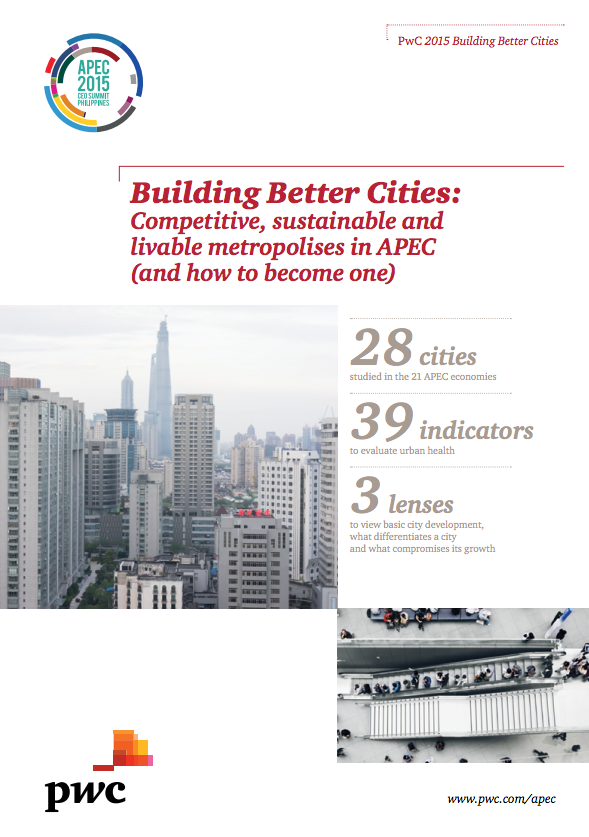
Top APEC cities for doing business revealed
20 November 2015
Toronto, Vancouver and Singapore have emerged as the top three cities in APEC (Asia Pacific Economic Cooperation) in which to live and do business, according to a new PwC study launched during the APEC 2015 CEO Summit.
The study, Building Better Cities, focuses on the role urban centres play in the context of APEC’s economic and social growth, and also looks at the cities’ growing influence outside their borders through three lenses: how they fare in basic city development, what differentiates them and the hindrances they face to growth. According to PwC, the study gives city leaders a view of where they are now, and hopes to inspire cities within APEC to collaborate and seek advice to solve problems.
“Our goal for this study is to spur dialogue among city leaders who are tackling challenges ranging from technological developments that make large investments outdated, to overstretched municipal budgets,” said Bob Moritz, Chairman and Senior Partner of the US firm of PwC. “This dialogue is critical because cities of APEC member countries will likely form ties to other cities, and in some cases even to other national economies.”
The study also looks at the rates of middle-class population growth, gross domestic product growth and the status of mobile broadband access to give fast growing cities an opportunity to accurately describe their progress and future growth potential.
Cities are now competing to attract an increasingly mobile, global workforce. The study reveals that talent collects where the right live-work mix is found and establishing a unique identity is crucial. Even a top-ranking city might lose out on expertise and investment capital if it is not known for a specific asset. It is becoming increasingly important for cities to build up their ‘brand’ to stay competitive.
“Brand cannot just be a slogan or a logo; it must be built on growth and must ring true for all involved,” added Moritz. “It is imperative that solving metropolitan issues is treated as part of the national agenda, where national and urban governments work together.”
The study grouped the 39 indicators according to five categories of urban excellence including culture and social health, connectivity, health and welfare, environmental sustainability, and economics.












